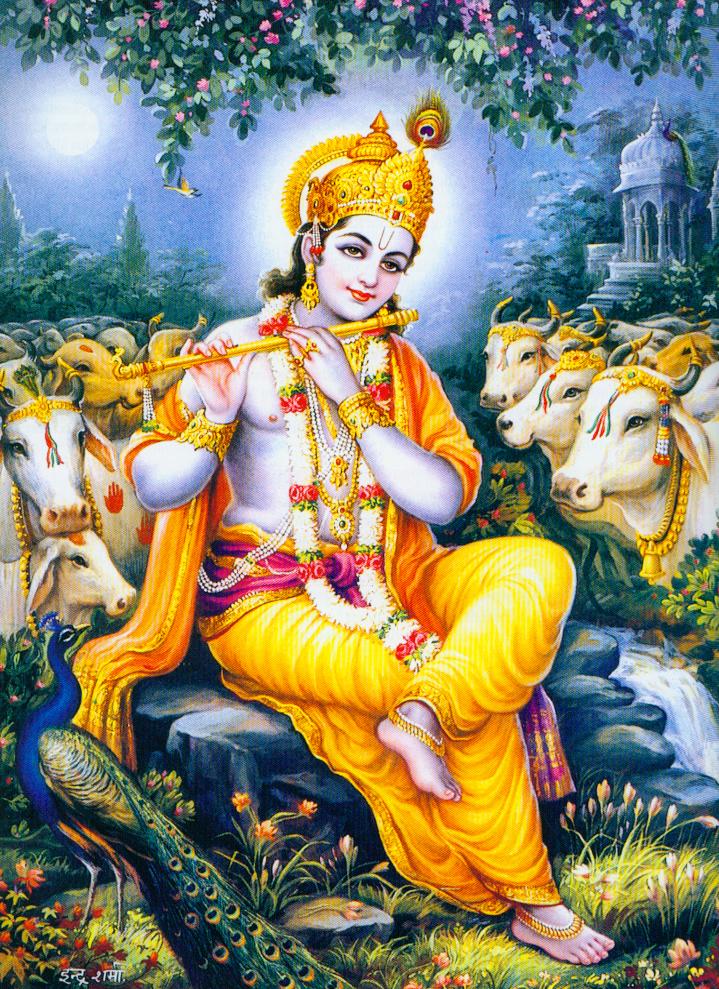In the multifaceted realm of religious beliefs, the Bahá’í Faith occupies a distinct and evocative position, particularly in its approach to monotheism and the understanding of spiritual figures from various traditions. Among these figures, Lord Krishna holds a significant place for Bahá’ís, who interpret his life and teachings through a lens of profound reverence and respect for the Hindu tradition. This article seeks to elucidate the Bahá’í perspective on Krishna and the conception of monotheism, thereby fostering a deeper understanding of the interconnectedness of faith traditions and the universality of divine revelation.
To commence our exploration, it is imperative to delineate the core tenets of Bahá’í belief regarding monotheism. Central to Bahá’í teachings is the recognition of a singular God, the source of all creation. This singularity does not preclude the existence of various manifestations of God who have appeared throughout history. Bahá’ís assert that these manifestations—such as Jesus, Muhammad, Moses, and, indeed, Krishna—are unique channels through which the divine message has been imparted to humanity. In this context, Krishna can be viewed as a manifestation of God who conveyed essential spiritual truths to the people of his time.
Krishna’s teachings, particularly as chronicled in sacred texts like the Bhagavad Gita, resonate powerfully within the Bahá’í worldview. They encapsulate themes of duty, love, and the eternal struggle between good and evil—principles that are universal and transcend cultural and religious boundaries. Bahá’í writings advocate for the harmony of science and religion, and the moral guidance found in Krishna’s discourse on righteousness is seen as a precursor to future revelations that promote unity and justice.
The relationship between Bahá’ís and Hindus is characterized by an overarching spirit of respect and appreciation. For Bahá’ís, the teachings of various religious figures, including Krishna, contribute to a broader understanding of the divine purpose and illuminate pathways toward spiritual enlightenment. This perspective encourages Bahá’ís to delve deeper into the profound philosophies that underpin Hinduism, fostering a dialogue that transcends mere theological differences.
One cannot discuss Krishna’s significance in the Bahá’í framework without acknowledging the intricate concept of unity in diversity. This principle is at the heart of Bahá’í beliefs, asserting that while different religions may appear dissimilar on the surface, they stem from a singular divine source. Krishna’s role as a divine figure in Hinduism exemplifies this unifying theme; his life and teachings embody the continuous revelation of divine wisdom aimed at guiding humanity toward collective advancement.
Furthermore, the Bahá’í interpretation of monotheism extends into the realm of religious pluralism. The acknowledgment of multiple spiritual leaders, including Krishna, does not dilute the concept of one God but rather enriches it. The Bahá’í Faith teaches that each manifestation of God embodies aspects of the divine message pertinent to their respective eras. Hence, Krishna’s contribution to spirituality is seen not as an isolated entity but as part of an ongoing divine narrative that encourages humanity to seek greater understanding and moral development.
In the discourse concerning the finality of religious texts, Bahá’ís recognize the importance of interpreting sacred writings in light of contemporary issues. This approach does not imply a rejection of Hindu scriptures, including those about Krishna; on the contrary, it invites a re-examination of their teachings in the context of modern societal challenges. The moral imperatives extolled by Krishna can inform Bahá’í advocacy for social justice, gender equality, and the promotion of peace—a stance that is increasingly relevant in today’s tumultuous world.
The notion of fulfilling one’s dharma, or duty, as articulated by Krishna serves as a compelling parallel to the Bahá’í emphasis on service to humanity. Both traditions advocate for a life anchored in ethical responsibility and selflessness, thus encouraging followers to engage in acts that support community welfare. This shared understanding can serve as a foundation for cooperative efforts between Bahá’ís and Hindus, uniting them in common endeavors aimed at alleviating suffering and fostering harmony.
In light of this profound interconnectedness, Bahá’í outreach mechanisms often embrace inclusive approaches, inviting Hindus to partake in dialogues that explore shared values. This invitation is not merely academic but reflects a genuine desire to build bridges of understanding. Initiatives such as interfaith gatherings and community service projects signify a commitment to co-create a society steeped in mutual respect and shared humanitarian goals.
Intriguingly, the Bahá’í perspective encourages a rethinking of inter-religious relationships, propelling them toward broader horizons. By acknowledging the significance of Krishna within the Bahá’í framework while simultaneously unpacking the rich tapestry of Hindu beliefs, followers are prompted to approach religious engagement with a spirit of curiosity and openness. This paradigm shift ultimately serves as an invitation to explore the nuances of faith, embrace diversity, and recognize the multifarious ways in which individuals connect with the divine.
In conclusion, the Bahá’í view of Lord Krishna exemplifies a commitment to monotheism that embraces the multiplicity of religious expressions. In recognizing the value of Hindu teachings, Bahá’ís exemplify the principle that all religious paths can lead toward a common truth. This interplay of ideas encourages followers of all faiths to pursue greater understanding, equity, and love for one another, thus embodying the essence of what it means to live a life of faith in today’s interconnected world. In this pursuit, the teachings of Krishna serve as a luminous guide, illuminating the way forward for a more harmonious and unified global community.
